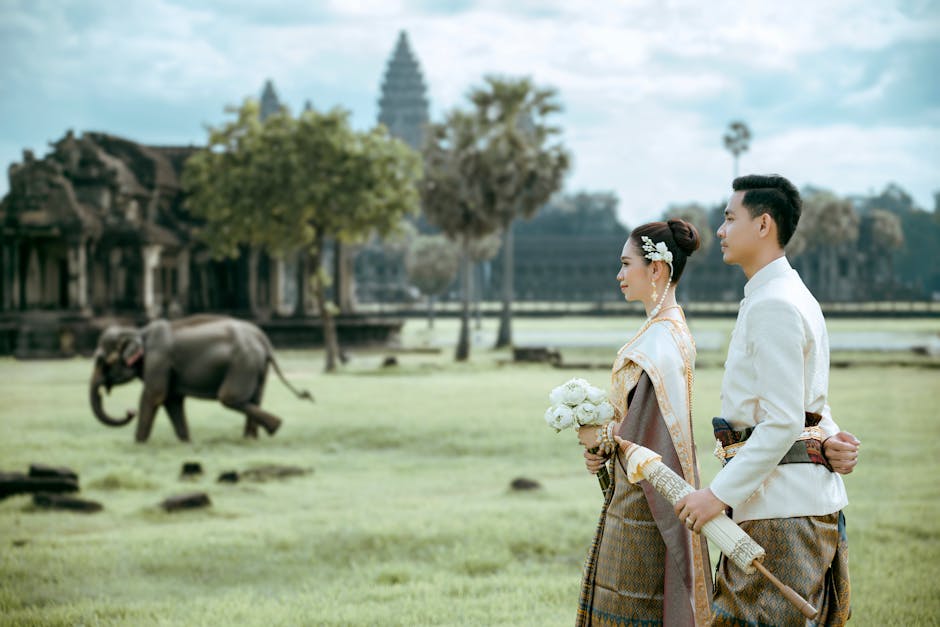Staying in a Ryokan: An Authentic Japanese Inn Experience

Staying in a Ryokan: An Authentic Japanese Inn Experience
Okay, so you're thinking about Japan, huh? Maybe you've seen pictures of serene gardens, temples bathed in golden light, and… well, maybe you've stumbled across some intriguing images of something called a Ryokan. Trust me, if you're considering a trip to Japan, staying in a Ryokan is an absolute MUST. It's not just accommodation; it's an experience that dives deep into the heart of Japanese culture, tradition, and unparalleled hospitality. I'm going to share my own experiences and insights to help you decide if a Ryokan stay is right for you, and how to make the most of it!
What Exactly Is a Ryokan?

Imagine stepping back in time, into a world of tranquility and refined elegance. That's essentially what a Ryokan offers. It's a traditional Japanese inn, distinct from Western-style hotels in almost every way. Think of it as more of a deeply immersive cultural experience than just a place to sleep. While modern hotels focus on efficiency and standardized comfort, Ryokans prioritize personalized service, aesthetic beauty, and connection to nature.
Here's a breakdown of some of the key features that make Ryokans so special:
- Tatami Mats: Forget carpets! Ryokans typically feature rooms floored with tatami mats – woven rush grass that's both comfortable and fragrant. You'll likely be asked to remove your shoes upon entering and wear slippers inside.
- Futon Beds: Instead of a Western-style bed, you'll sleep on a comfortable futon mattress laid out on the tatami floor. This is usually prepared by the Ryokan staff while you're enjoying dinner.
- Shoji Screens: These delicate paper screens act as walls and windows, allowing soft, diffused light to filter through. They create a sense of privacy while maintaining an airy, open feel.
- Onsen (Hot Springs): Many Ryokans, especially those in rural areas, boast their own onsen. These natural hot spring baths are a cornerstone of Japanese culture and offer a relaxing and rejuvenating experience. More on this later!
- Kaiseki Dinner: Arguably the highlight of a Ryokan stay, Kaiseki is a multi-course Japanese haute cuisine, beautifully presented and featuring seasonal ingredients. It's a culinary masterpiece!
- Yukata Robes: You'll typically find a yukata, a lightweight cotton robe, provided in your room. Guests wear these around the Ryokan, including to the onsen and during dinner.
My First Ryokan Experience: A Touch of Magic

My first Ryokan stay was in Hakone, a mountain resort town known for its stunning views of Mount Fuji. Honestly, I was a little nervous. I wasn't sure about the etiquette, the food, or even sleeping on the floor! But from the moment I stepped inside, I was completely captivated.
The staff greeted me with warm smiles and a bow, ushering me into a beautifully appointed room overlooking a meticulously manicured garden. The scent of tatami filled the air, and the shoji screens cast a soft, golden light. It felt instantly peaceful and serene.
That evening, I donned my yukata (feeling slightly awkward at first!), slipped on the provided geta (wooden sandals), and ventured down to the onsen. The hot, mineral-rich water soothed my aching muscles, and the crisp mountain air invigorated my senses. It was pure bliss. Then came dinner… oh, the dinner! Each course of the Kaiseki meal was a work of art, both visually stunning and incredibly delicious. I tried things I'd never even heard of, and discovered a newfound appreciation for Japanese cuisine.
Sleeping on the futon was surprisingly comfortable! I drifted off to sleep to the gentle sounds of nature, feeling completely relaxed and rejuvenated. The whole experience felt like stepping into a different world, a world of tranquility, beauty, and impeccable hospitality.
Finding the Right Ryokan for You

Not all Ryokans are created equal! They range from small, family-run establishments to luxurious resorts with all the modern amenities. So, how do you choose the right one for your needs and budget?
Here are a few things to consider:
- Location: Do you want to be in a bustling city, a peaceful countryside, or near a specific attraction? Location plays a huge role in the overall experience. Mountain Ryokans offer stunning views and access to hiking trails, while those in historic towns provide a glimpse into the past.
- Budget: Ryokans can be quite expensive, especially those offering elaborate Kaiseki dinners and private onsen. Set a budget beforehand and stick to it. There are Ryokans to suit a range of price points, but generally, the more luxurious the amenities, the higher the price.
- Onsen Facilities: Are onsen a must-have for you? If so, make sure the Ryokan has them! Some offer indoor and outdoor baths, while others have private baths attached to the rooms. Consider whether you're comfortable with communal bathing (common in Japan).
- Room Type: Do you prefer a traditional Japanese room or a more modern Western-style room? Some Ryokans offer a blend of both. Think about the size of the room you need and whether you require any specific amenities.
- Reviews: Read online reviews from other travelers to get a sense of the Ryokan's quality, service, and overall atmosphere. Pay attention to both positive and negative feedback.
Websites like Booking.com, Expedia, and Japanican often have a wide selection of Ryokans. You can also check out specialized websites that focus exclusively on Japanese accommodations. Don't be afraid to contact the Ryokan directly with any questions you may have.
Onsen Etiquette: A Quick Guide

Okay, let's talk about onsen! This is often the aspect that makes people a little nervous, especially if they're not used to communal bathing. But trust me, it's an integral part of the Ryokan experience, and once you embrace it, you'll understand why it's so revered in Japanese culture.
Here's a quick rundown of onsen etiquette:
- Know the Gender Divisions: Onsen are usually separated by gender, clearly marked with signs. Make sure you enter the correct one!
- Undress Completely: Yes, you read that right. Onsen are traditionally enjoyed naked. There are usually changing rooms with lockers to store your clothes and belongings.
- Wash Thoroughly Before Entering: Before you step into the onsen, you must wash yourself thoroughly at the provided washing stations. These usually have small stools, buckets, and soap/shampoo. This is crucial for hygiene!
- Keep Your Towel Out of the Water: You'll be given a small towel, which you can use to wash yourself and then discreetly cover yourself while walking to and from the onsen. However, don't put the towel in the bath water. You can place it on your head or on the side of the bath.
- Be Quiet and Respectful: Onsen are meant to be a place of relaxation and tranquility. Avoid loud talking or splashing.
- No Photography: Photography is strictly prohibited in onsen for privacy reasons.
- Tattoos: Traditionally, tattoos were associated with organized crime in Japan, and some onsen still prohibit entry to people with tattoos. However, this is becoming less strict, especially in tourist areas. If you have tattoos, it's best to check with the Ryokan beforehand. You may be able to cover them with waterproof bandages.
Pro Tip: Don't worry too much about making mistakes! Most Japanese people are very understanding and will appreciate your effort to follow the customs. Just be respectful and mindful of your surroundings.
Beyond the Basics: Tips for an Unforgettable Stay

To truly immerse yourself in the Ryokan experience, here are a few extra tips:
- Learn a Few Basic Japanese Phrases: Knowing a few simple phrases like "Konnichiwa" (hello), "Arigato" (thank you), and "Sumimasen" (excuse me) will go a long way in showing respect and appreciation.
- Embrace the Silence: Ryokans are designed to be peaceful and tranquil. Resist the urge to constantly check your phone or engage in loud conversations.
- Explore the Grounds: Many Ryokans have beautiful gardens, walking paths, and other amenities. Take some time to explore and appreciate the natural surroundings.
- Try the Local Sake: Ryokans often offer a selection of local sake (rice wine). It's a great way to experience the regional flavors and culture.
- Don't Be Afraid to Ask Questions: The staff at Ryokans are usually very helpful and eager to share their knowledge of Japanese culture. Don't hesitate to ask them questions about anything you're curious about.
Kaiseki Dinner: A Culinary Journey

Let's talk a little more about Kaiseki dinner. This isn't just a meal; it's an art form! Each course is meticulously crafted and beautifully presented, showcasing the freshest seasonal ingredients. It's a celebration of Japanese flavors and culinary techniques.
Here's what you can typically expect from a Kaiseki dinner:
- Sakizuke: An appetizer, often a small and delicate dish that awakens the palate.
- Hassun: A selection of seasonal delicacies, beautifully arranged on a tray.
- Mukozuke: Sliced seasonal sashimi, served with various dipping sauces.
- Takiawase: A simmered dish, often featuring vegetables and meat or fish.
- Yakimono: A grilled dish, typically fish or meat.
- Nimono: A simmered dish, often featuring vegetables and seafood.
- Shokuji: Rice, miso soup, and pickles, served as the main course.
- Mizumono: A dessert, often featuring seasonal fruits or Japanese sweets.
Don't be afraid to try everything, even if you're not sure what it is! Kaiseki is all about experiencing new flavors and textures. And remember to appreciate the artistry and presentation of each dish.
Ryokan vs. Hotel: What's the Difference?

To summarize, let's clearly differentiate a Ryokan from a typical hotel. While both offer accommodation, their aims and the experience they provide are vastly different:
Ryokan:
- Focuses on cultural immersion and traditional Japanese hospitality.
- Features tatami mats, futon beds, shoji screens, and yukata robes.
- Often includes onsen and Kaiseki dinner.
- Prioritizes personalized service and a connection to nature.
- Offers a unique and memorable experience.
Hotel:
- Focuses on efficiency and standardized comfort.
- Features Western-style beds, carpets, and modern amenities.
- May have a restaurant and gym, but not necessarily traditional Japanese features.
- Prioritizes convenience and functionality.
- Offers a predictable and comfortable stay.
Ultimately, the choice between a Ryokan and a hotel depends on your priorities. If you're looking for a convenient and comfortable place to sleep, a hotel might be a better option. But if you're seeking a truly authentic and immersive cultural experience, a Ryokan is the way to go.
Is a Ryokan Stay Right for You?

So, after all that, is a Ryokan stay right for you? I think it is, for almost everyone! But to be sure, consider these points:
- Are you open to new experiences? Stepping outside your comfort zone is key to enjoying a Ryokan stay.
- Are you interested in Japanese culture? A Ryokan is a fantastic way to immerse yourself in the traditions and customs of Japan.
- Are you looking for relaxation and tranquility? Ryokans are designed to be peaceful and serene retreats.
- Are you willing to spend a bit more? Ryokans are generally more expensive than hotels, but the experience is well worth the cost.
If you answered "yes" to most of these questions, then I highly recommend giving a Ryokan a try. It's an experience you won't soon forget!
I hope my insights and experiences have inspired you to consider a Ryokan stay on your next trip to Japan. It truly is a magical and unforgettable experience that will leave you with a deeper appreciation for Japanese culture and hospitality. Enjoy your journey!
Post a Comment